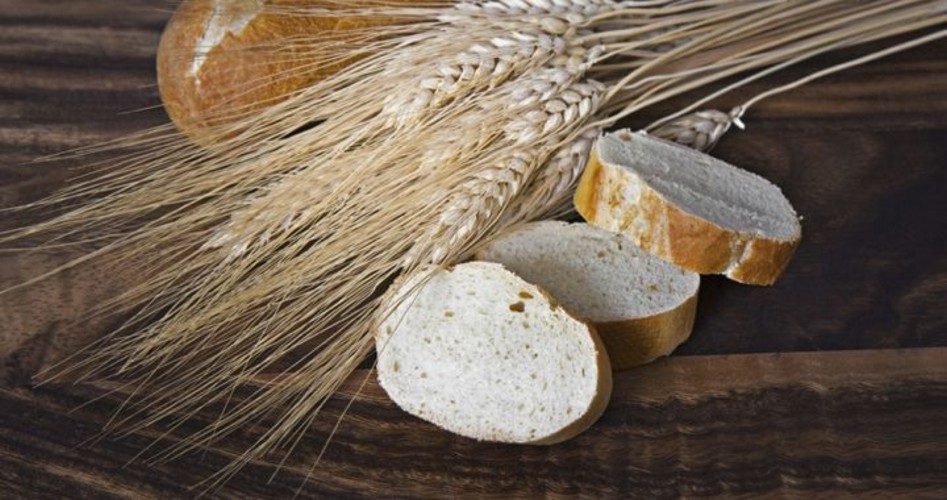
Four bakers trying to make ends meet were arrested earlier this week in Caracas, the capital of Venezuela, a country that was once one of South America’s premier economic powerhouses. Venezuela’s ruler, Nicolas Maduro, mandated that 90 percent of scarce flour be turned into bread, which must be sold at a loss, rather than higher-priced sweet bread, ham-filled croissants, pastries, and cakes.Two bakers apparently broke this law, and two used out-of-date wheat for brownies. At least one baker will have his bakery taken over by the government for 90 days. The bakers, operating under Maduro’s mandates that they use government-imported wheat for flour to bake bread and sell it below their costs, were on survival mode, as are most of the people living in Venezuela’s socialist paradise.
Maduro, rather than to take the justified blame for the economic malaise that his socialist policies have caused, has dreamed up all manner of straw men to blame for the country’s woes, starting with the United States aim to make his administration look bad through “intervention” in the economy. He blames the greed of bakers and others still trying to eke out a living under the most draconian of rules. He also blames El Nino for the economy’s problems, along with the country’s drought.
He has all types of solutions to the economy’s difficulties, not one of which addresses the primary problem: lack of freedom of his citizens to produce what people need and want at a price that allows them to stay in business. For example, el presidente has suggested:
• Women shouldn’t blow-dry their hair except for “special occasions”;
• Everyone must move their clocks forward by half an hour, thus increasing daylight working hours;
• Closing schools on Fridays; and
• Assigning government bureaucrats just two days of work every week.
He has inflated the money supply to the point where the local currency is all but worthless. He has set price controls — designed, he says, to check inflation and keep goods affordable — at levels that have taken necessities off the market altogether, including toilet paper, essential food items such as bread, medicines, deodorant, paper goods, and hospital supplies, including drugs, antibiotics, and intravenous solutions. If a patient needs a prescription, he must bring it with him when he checks in.
Rolling blackouts interrupt critical hospital functions, such as respirators, forcing doctors to keep patients alive, when they can, by pumping air into their lungs by hand. Sanitary gloves and soap have vanished, as has enough water to wash blood from operating tables.
In Maduro’s mad paradise, these essential products and services have simply disappeared.
Crime has grown to the point where one in every thousand people dies every year from being murdered, often during gang wars, in which gangs seek to maintain control when local police aren’t able to.
The government is doing everything it can to stem the crisis, according to Maduro, everything except the right thing: letting businessmen, such as bakers, serve customers without government interference. But totalitarians such as Maduro have little interest in giving back any such freedom, and they squash any that happens to spring up.
The effects of such “leaders” was celebrated in poetic form by R.W. Grant years ago via “Tom Smith and His Incredible Bread Machine.” After building his incredible bread machine that fed people for a penny a loaf, Grant wrote what happened next:
But Smith himself was now forgot,
Though bread was everywhere.
People, asked from where it came,
Would very seldom know.
They would simply eat and ask,
‘Was not it always so?”
However, Smith cared not a bit,
For millions ate his bread,
And “Everything is fine,” thought he.
“I’m rich and they are fed!”
But the fact that he was rich infuriated the powers that be, and something had to be done! Said one busy-body professor who never lifted a worthwhile business finger in his life:
“So students, let me finally say
That we must find a nobler way.
So, let us fix the race that all
May finish side-by-side;
The playing field forever flat,
The score forever tied.
To achieve this end, of course,
We turn to government-and force.
So, if we have to bring Smith do
As indeed we should,
I’m sure you will agree with me,
It’s for the Greater Good!”
Comments in the nation’s press
Now scorned Smith and his plunder:
‘What right had he to get so rich
On other people’s hunger?”
A prize cartoon depicted Smith
With fat and drooping jowls
Snatching bread from hungry babes,
Indifferent to their howls….
The clamor rises all about;
Now hear the politician shout:
‘What’s Smith done, so rich to be?
Why should Smith have more than thee?
So, down with Smith and down with greed;
I’ll protect your right to need!”
It didn’t matter, of course, that those politicians criticizing Smith for his marvelous machine had never turned a profit in their own ventures:
‘We don’t produce or build a thing!
But before we’re through,
We allow that now we’ll show Smith how
We handle those who do!
‘We serve the public interest;
We make up our own laws;
Oh, golly gee, how selflessly
We serve the public cause!
Naturally, there had to be a trial which outcome, naturally, was determined in advance: five years in jail for his crime!
The sentence seemed a bit severe,
But mercy was extended.
In deference to his mother’s pleas,
One year was suspended.
And what about the Bread Machine?
Tom Smith’s little friend?
Broken up and sold for scrap.
Some win. Some lose. The end.
Or, as George Santayana might explain about Venezuela’s decline to banana-republic status, “Those who cannot remember the past are condemned to repeat it.”
An Ivy League graduate and former investment advisor, Bob is a regular contributor to The New American magazine and blogs frequently at LightFromTheRight.com, primarily on economics and politics. He can be reached at [email protected].



